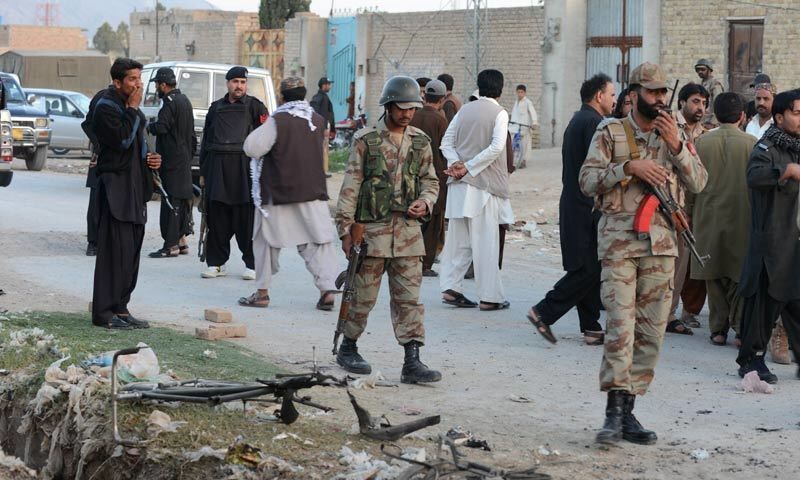Deep into the quagmire
Pakistan must cover an extra mile to dilute terror assaults within the country in order to get itself out of the FATF grey list

Pakistan is reeling under yet another shock as the terror-related global watchdog — Financial Action Task Force (FATF) — further extended its ban retaining Pakistan under the grey list, following the country's abysmal failure to fulfill all the requirements. This has obviously dealt a severe blow to Pakistan's image which already stands badly bruised and battered. Unable to reconcile to this harsh reality, Pakistan has started reacting in panic. Pakistan's Minister for Finance and Revenue, Shawkat Tarin, in an interview (March 5) to 'Khaleej Times', has described the decision to be politically motivated. He also alleged that the decision was taken under the influence of some powerful nations to pressurize Pakistan around its strategic policy decisions. In the same vein, the minister claimed that Pakistan, having completed 26 of the 27 conditions, is expected to come out of the list later in June this year.
Pakistani political leadership has also insinuated India's hand for this FATF verdict. However, the financial monitoring agency has called upon Pakistan to continue to work to address the pending tasks through demonstrating a positive and sustained approach towards complex terror-related investigations and prosecutions. Experts, in the meantime, assess that in view of Pakistan's inertia, the FATF, as the global money laundering and terror-financing watchdog, may keep Pakistan under increased monitoring on one pretext or the other. Experts also analyze that Islamabad's growing tilt towards China, and recently Russia, is widening the gulf between the country and the West, including the US — allowing India to "influence" FATF decision on Pakistan. This, however, looks farfetched. Also, these developments exhibit Pakistan's weakening clout among the Western capitals. Reacting to this, a powerful voice of the Pakistani print media has called upon its government to beef up diplomatic efforts for garnering greater support for its attempts to exit the grey list by attending to the remaining unfulfilled conditions.
Simultaneously, on March 4, a deadly suicide attack rocked Kissa Bazar in Peshawar, causing over 57 casualties and grievous injuries to over 200 people. Very significantly, the suicide bombing was carried out in a Shia Mosque on a pious Friday where Muslims congregate to offer prayers. Sadly, religious intolerance has once again come to the fore in Pakistan, proving that the minority Shias are being deliberately targeted, as in the past when the Hazaras, the Ahmediyas, the Sikhs and the Hindus were often victimized through terror killings. There is also an increasing trend of blaming and framing the minorities on the pretext of blasphemy laws. It is always convenient for the Pakistan's politicians and security agencies to blame India for causing terror attacks in various parts of Pakistan, especially in the turbulent Baluchistan but the authorities are invariably under a sense of amnesia that their own intelligence services and well-fed military, along with the ISI, have failed time and again to alert the district administration for taking any preventive measures. This aspect requires attention. Pakistan must stop blaming a neighboring country for the spiraling terror misadventures at the very heart of Pakistan.
A mention of Baluchistan as a target of terror attacks can be made here. Baluchistan watchers say that this state is changing rapidly. Conventional provincial allies of power elites in Islamabad and Rawalpindi are losing their importance, including the sardars, nawabs and elders of 'peace committees' who have been keeping an eye on the dissidents, acting against them when needed. Experts further reckon that the China-Pakistan Economic Corridor (CPEC) has securitized the region and caused immense damage. First, it has aggravated the residents' ire. Second, the lack of interaction between the Chinese workers and the local population have not only triggered conspiracy theories about CPEC but have also made the Chinese a target of the insurgents.
Interestingly, administrations in the Makran region, especially in Gwadar, have been tasked for expediting the development projects committed under CPEC and the prime minister's southern Baluchistan package. These projects include changing water supply pipelines, coal power to address Gwadar's energy needs and technical education institutions across the region, apart from an industrial estate in Turbat. However, the citizens doubt these projects will be completed soon given the government's past record. The biggest worry is that a mafia of contractors consisting of influential people in the government, bureaucracy and establishment, wants the contracts to execute these projects. If they get these, it could inflict huge damage on national treasure and CPEC's reputation and will also increase the trust deficit between the state and the Baluchistan citizens. However, on ground, so far there is no action or execution of the plan. For power elites, development is a major strategy for addressing local grievances, but this model has not produced results because of corruption and lack of parliamentary and citizenry oversight. The demand of the people is genuine.
In sum, simmering in Baluchistan, terror cases, as most recently in Peshawar, along with the political tumult and the FATF retaining Pakistan in the grey list, have posed endless problems to the political leadership. The country must cover an extra mile to minimize its headaches and strive constantly to get itself out of the FATF grey list.
The writer is a retired IPS officer, a security analyst, and the former National Security Advisor to the Prime Minister of Mauritius. Views expressed are personal



